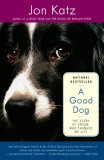 Title
Title: The Great Gatsby
Author: F. Scott Fitzgerald
Publication Date: 1925
No. of Pages: 192
Synopsis (from B&N): "Many consider The Great Gatsby the closest thing to the Great American Novel ever written. First published in 1925, it is the timeless story of Jay Gatsby and his love for Daisy Buchanan. Inseparably associated with a point in history he claimed to despise, F. Scott Fitzgerald is both the quintessential Jazz-Age writer and perhaps the era’s harshest critic. However, the complexity and sheer timelessness of classics such as The Great Gatsby has ensured that Fitzgerald’s work will never be regarded as mere period pieces."
Fiction or Nonfiction: fiction
Comments and Critique: I loved this book and will definitely read it again. I'd love to read it with a group, as I think I'd get so much more out of it. There are numerous layers of thought and feeling, and I know I missed a lot on this first reading. I'm also going to check out one of the movie versions and see if I get anything extra from it.
As a side note, this is one of the books discussed in Reading Lolita in Tehran, and the discussion of it in that book further helped my understanding. I highly recommend reading RLIT in conjunction with Gatsby, as it will greatly add to the experience. Also, I found a very nice article about Gatsby in the Washington Post. Click
here if you're interested.
Would You Recommend This Book to Others: Absolutely! I loved this book and am only sorry that I waited so many years to read it.
Challenges: 1% Well-Read Challenge; Banned Books Challenge; Orbis Terrarum Challenge; Wind-Up Book Challenge
Weekly Geeks questions:Chris asked: "
At the end of The Great Gatsby, what were your feelings towards Gatsby? What about Nick? Did your feelings change throughout the book?"
My feelings towards both Gatsby and Nick, as well as Daisy, did change throughout the book. Probably the only one toward whom my feelings didn't change was Tom -- they intensified but didn't essentially change. The only way I can describe my early feelings about Gatsby is star-struck. He seemed attractive, the kind of man that others look up to and admire, and I could feel myself reacting the same way. But over time, my admiration changed to pity, the kind you feel for someone going through something you've gone through but moved past, outgrown in a way.
As for Nick, I liked him less than Gatsby, but never felt an active dislike. He struck me as a person essentially without integrity, without a strong sense of self.
Joy Renee asked about the technique and art of storytelling. She asked a number of questions, but for this review I'm only going to focus on
theme.
I checked out a number of study guide-type websites when I was thinking about this, and I have to say that I think a number of them miss the point. One central theme that many seem to agree on is the death of the American Dream, but the common idea seems to be that the American Dream centers on money. I don't agree with this. Yes, America is and always has been about making money, but the money was generally a means to an end, not the end itself. To me, the American Dream is about freedom -- freedom to love who we want, to live where we want, to dream and hope for what we want. Money is important only insofar as it allows us to do and strive for everything else. Gatsby didn't make his fortune for the sake of being rich, but for what else it could give him -- his dream of Daisy.
Notice I said his dream of Daisy, not Daisy herself. To me, this is the real theme of the novel -- our illusions, and the loss thereof. SparkNotes does a better job of commenting on this than I could, so I'll just direct you
there. I know that this doesn't come close to doing justice to either the book or Joy Renee's questions and for this I apologize. I'm going to try to make notes as I read in the future so I don't have to rely solely on (often faulty) memory.






































